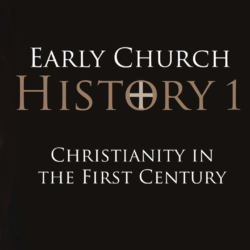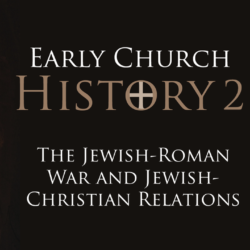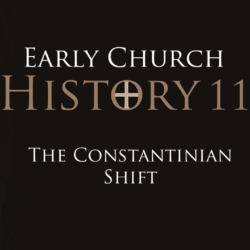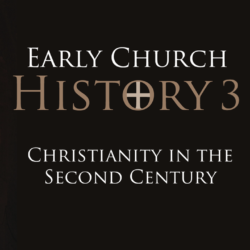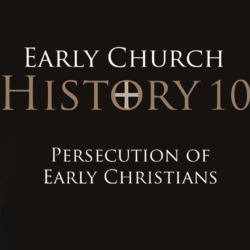This is part 6 of the Early Church History class.
In the latter half of the second century, two kinds of Christians arose to defend the faith. On the one hand, apologists wrote defenses of Christianity directed at the Roman government. They responded to rumors, arguing that Christians were decent people who should be shown toleration. On the other hand, heresy hunters (or heresiologists) began to combat Christian groups that diverged significantly from apostolic Christianity, such as the Gnostics, Valentinians, and Marcionites. Today we’ll briefly overview this fascinating period of Christianity when persuasion not coercion was the means to defeat one’s opponents.
Listen to this episode on Spotify or Apple Podcasts
—— Links ——
- More Restitutio resources on Christian history
- More classes here
- Support Restitutio by donating here
- Join our Restitutio Facebook Group and follow Sean Finnegan on Twitter @RestitutioSF
- Leave a voice message via SpeakPipe with questions or comments and we may play them out on the air
- Intro music: Good Vibes by MBB Attribution-ShareAlike 3.0 Unported (CC BY-SA 3.0) Free Download / Stream: Music promoted by Audio Library.
- Who is Sean Finnegan? Read his bio here
—— Notes ——
Apologists (Defenders) of the 2nd C.
– Quadratus (130?)
– Aristo of Pella (c. 140?)
– Aristides (c. 145)
– Miltiades (c. 160-180?)
– Justin Martyr (d. 165)
– Athenagoras (c. 170-180)
– Melito of Sardis (c. 170-180?)
– Appolinaris of Hierapolis (170-180)
– Tatian (d. 180?)
– Theophilus of Antioch (c. 180-185)
– Epistle of Diognetus (150-225)
Quadratus of Athens (130)
– addressed book to Hadrian (r. 117-138)
– claimed to know people healed by Jesus
Epistle of Diognetus (150-225)
– author ideas: Hippolytus, Aristides, Pantaenus
– common criticisms are that Christians are incestuous b/c we call each other brother and sister, cannibals b/c we eat body and blood of Jesus, atheists b/c we didn’t believe in the gods, politically subversive b/c we didn’t honor the emperor by offering incense to his statue
– Diog. 5.1-17 provides an excellent example of an effective apologist
Justin Martyr (100-165)
– Stoic -> Peripatetic -> Pythagorean -> Platonist -> Christian
– founded a school in Rome
– claimed Greek philosophers accessed truth of the Logos, thus Christianity is not a novel religion
– Justin addressed his case to the Roman emperor and his sons and the senate and the Roman people (First Apology 1.1-2)
– Dialogue with Trypho employed the idea of heresy as defined by a key belief—resurrection (see chapter 80)
Heresy Hunters
– Justin (140-160)
– Irenaeus (180-199)
– Tertullian (200-213)
– Hippolytus (200-230)
– Eusebius (324)
– Epiphanius (374-377)
– Theodoret (452-453)
Standard Arguments
– too complicated
– trace beliefs to heresiarch
– unnatural interpretation of scripture
– can’t trace beliefs back to the apostles
– perverted truth leads to perverted morals
– new generations recycle old heresies Irenaeus of Lyons (130-202)
– Argued against Valentinus, Marcus, Ptolemaeus, Saturninus, Basilides, Carpocrates, Cerinthus, Ebionites, Nicolaitans, Cerdo, Marcion, Tatian, the Encratites, Orphites, Sethians, Cainites, and others
– Against Heresies (aka. The Refutation and Overthrow of Falsely Called Gnosis) intended to equip church leaders to protect their unsuspecting flock from getting tricked into believing any forms of Gnosticism
Review
– Apologists focused on defending Christianity against outsiders by writing to the Roman authorities and laying out a case for toleration.
– Justin Martyr taught that Christianity had continuity with Greek philosophers who also accessed the Logos.
– Heresy hunters (heresiologists) defended Christianity against insiders who had differing beliefs from theirs.
– Christians fought heresy by using key beliefs they knew their opponents couldn’t affirm and by labelling them.
– Justin and Irenaeus emphasized resurrection and an ultimate kingdom on earth to exclude those who held varieties of Gnostic beliefs.

